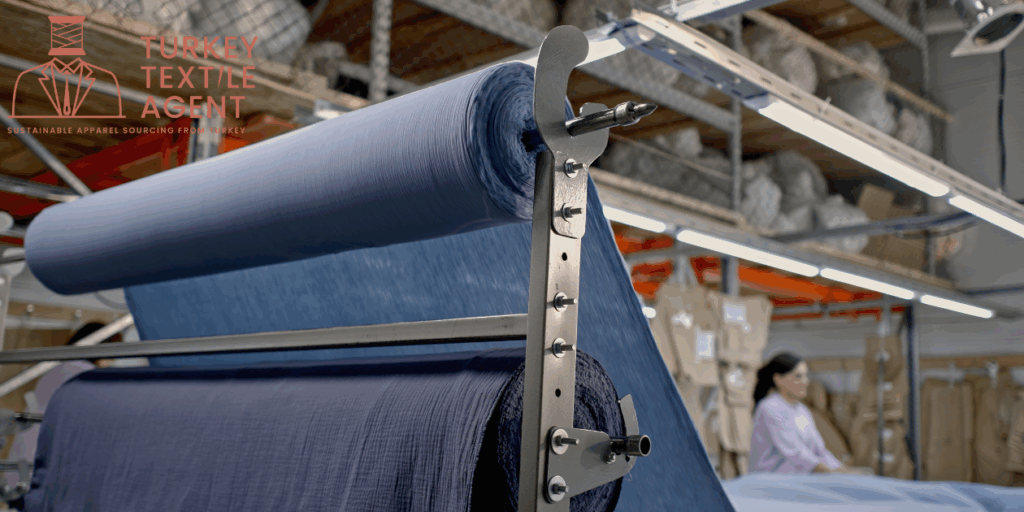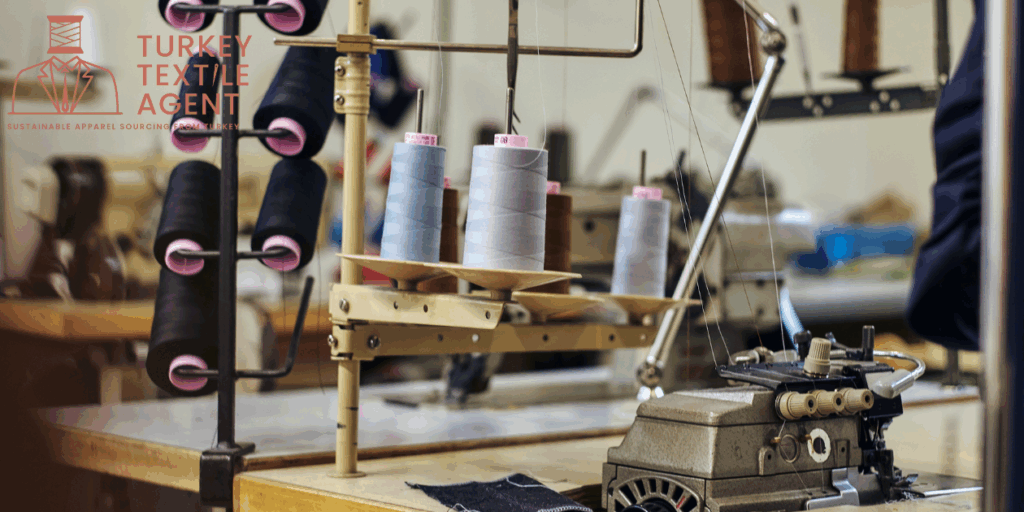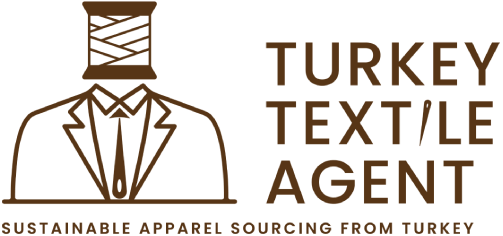Sourcing from Turkey offers an ideal mix of high-quality textile expertise, sustainability standards, and strategic trade advantages for U.S.-based fashion brands. With its thriving textile industry, Turkey presents a significant opportunity—but sourcing ethically and responsibly requires strategy, due diligence, and the right partnerships.
This in-depth guide reveals exactly how to source ethical apparel manufacturing in Turkey, avoid risks, and build trustworthy supply chain relationships that align with your brand’s sustainability goals.
Why Choose Turkey for Ethical Apparel Manufacturing
Turkey is a leading hub for textile production, known for its advanced manufacturing infrastructure, skilled labor force, and commitment to eco-conscious practices.

- Strategic Location: Close to Europe and the U.S. East Coast with short lead times.
- High Quality Standards: Turkish mills are renowned for premium fabrics and modern techniques.
- EU Compliant Regulations: Aligns with global labor and sustainability frameworks.
- Growing Ethical Movement: Numerous certified factories practicing fair wages, gender equality, and low environmental impact.
Understanding Ethical Manufacturing in Turkey
Ethical apparel manufacturing entails more than eco-friendly materials; it integrates fair labor practices, safe working conditions, transparent supply chains, and sustainable sourcing.
Look for the following criteria in Turkish manufacturers:
- Living wages & safe working conditions
- No child or forced labor
- Gender equality policies
- Energy-efficient production processes
- Use of organic, recycled, or OEKO-TEX certified materials

Certifications to Look for in Turkish Manufacturers
Working with certified factories in Turkey ensures verifiable ethical standards. Key certifications include:
- GOTS (Global Organic Textile Standard): For certified organic production.
- Fair Wear Foundation: Ensures fair labor conditions.
- Sedex & SMETA Audits: Ethical and social responsibility audits.
- SA8000: International standard for workplace fairness.
- ISO 14001 & ISO 45001: Environmental and occupational health standards.
How to Vet Ethical Manufacturers in Turkey
To ensure ethical apparel manufacturing, implement a rigorous vetting process:
1. Conduct Initial Research
- Use B2B platforms like Alibaba, Maker’s Row, or Kompass Turkey.
- Check factory websites for transparency and certifications.
- Analyze reviews and references.
2. Request Factory Documentation
- Certificates of compliance (e.g., GOTS, ISO).
- Employee contracts and wage breakdowns.
- Environmental reports and audit history.
3. Schedule On-Site Visits or Virtual Audits
- Tour the factory or appoint a trusted third-party auditing service.
- Assess factory safety, cleanliness, and worker satisfaction.
- Interview workers where possible.
4. Ask Key Questions
- What’s the average wage compared to Turkish standards?
- Are workers unionized or represented?
- How are overtime and holidays handled?
- What sustainability measures are in place?
Top Ethical Apparel Manufacturing Hubs in Turkey
Knowing where to look in Turkey helps you find specialized and compliant apparel manufacturers. Focus on these key regions:
Istanbul
- Largest apparel production base.
- Houses eco-certified full-package manufacturers.
- High availability of English-speaking agents.
Izmir
- Strong in cotton textiles and organic manufacturing.
- Excellent compliance with EU export standards.
Denizli
- Known for sustainable production of towels, loungewear, and basics.
- Many GOTS and OEKO-TEX certified manufacturers.
Bursa
- Specialized in technical textiles and high-performance apparel.
- Advanced R&D capabilities and dyeing tech.
How to Build Strong Relationships with Turkish Suppliers
A long-term relationship ensures supply chain resilience and consistent ethical compliance.
- Start Small: Test with small production runs.
- Use Clear Contracts: Outline ethical standards, audits, and material sourcing.
- Communicate Expectations: Be upfront about sustainability goals.
- Schedule Regular Visits: Foster transparency and accountability.
- Invest in Capacity Building: Offer training or support for certifications.

Common Challenges and How to Overcome Them
Even with the best intentions, ethical sourcing presents obstacles. Here’s how to navigate them:
Language and Cultural Barriers
- Work with bilingual agents or Turkish sourcing consultants.
- Establish clear documentation practices.
Greenwashing
- Don’t rely solely on manufacturer claims—demand third-party certification.
- Research history of compliance violations.
Unclear Labor Policies
- Ask to see employment policies and benefits structure.
- Verify alignment with Turkish labor law and ILO standards.
Legal Considerations and Compliance Requirements
For U.S. fashion brands, sourcing ethically from Turkey involves:
- Customs Documentation: Ensure HS codes, origin certificates, and packing lists comply with U.S. import standards.
- Trade Agreements: Leverage U.S.-Turkey trade benefits, though not a free trade agreement partner.
- Due Diligence Reporting: Track supplier compliance with the Uyghur Forced Labor Prevention Act (UFLPA) and other human rights laws.
Sustainability Trends in Turkey’s Apparel Sector
The Turkish apparel industry is actively investing in circularity and clean energy:
- Closed-loop manufacturing for denim and basics.
- Solar-powered factories in Aegean regions.
- Zero-liquid discharge dyeing systems.
- Recycled polyester initiatives from post-consumer waste.
Turkey’s focus on traceable production systems gives it a competitive edge in ethical fashion.
Sourcing Ethical Apparel in Turkey: Step-by-Step Guide
- Define your ethical sourcing criteria
- Research certified Turkish manufacturers
- Contact suppliers and review certifications
- Request pricing and samples
- Verify compliance with audits or visits
- Negotiate terms and create ethical contracts
- Begin small-batch production
- Maintain regular communication and oversight
Recommended Platforms and Resources
- MENA Textile Manufacturers Directory: Filter for sustainability credentials.
- Turkish Exporters Assembly (TIM): Industry-wide listings and contact resources.
- Ethical Fashion Forum / Common Objective: Supplier vetting database.
- LinkedIn Sourcing Groups: Join Turkish textile & garment sourcing communities.
Conclusion
Sourcing from Turkey offers unmatched opportunities for U.S. fashion brands seeking ethical apparel manufacturing. With due diligence, brand transparency, and certified partnerships, your label can deliver high-quality garments while meeting global standards for social responsibility and sustainability.
To stay competitive and compliant, it is vital to treat sourcing not just as procurement—but as a partnership built on shared values. Choose factories that not only produce great fashion, but do so with integrity.

